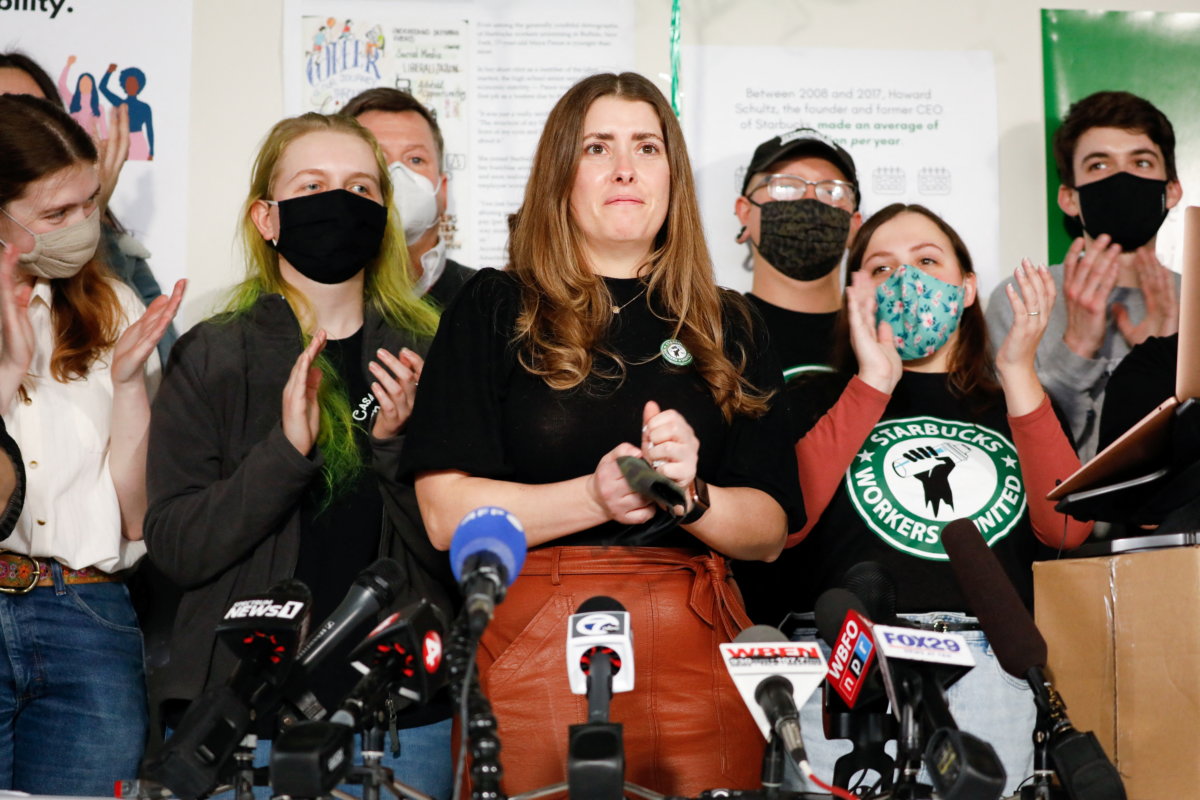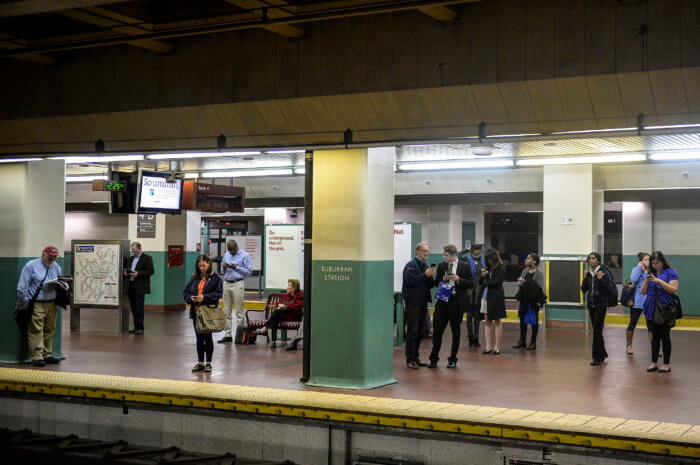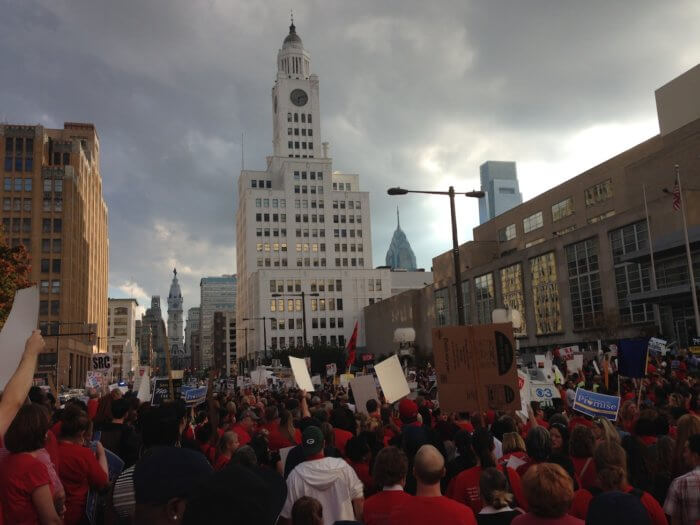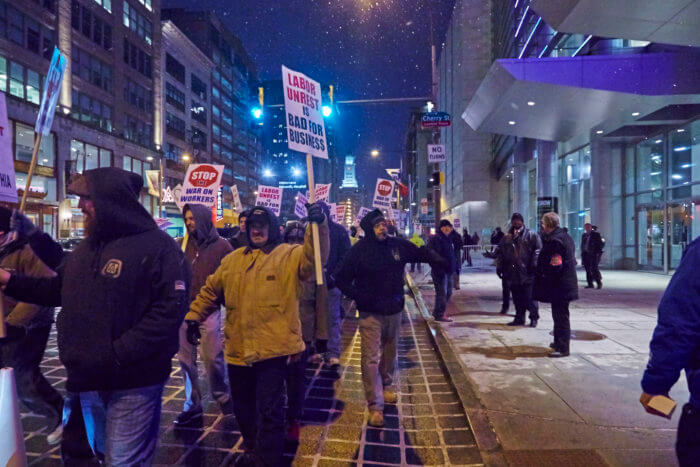BUFFALO, N.Y. – Starbucks Corp. employees on Thursday voted to join a union at one store in Buffalo, New York, delivering the coffee chain its first unionized company-owned location in the United States. Workers at a second location in Buffalo voted to reject the drive to organize.
Employees at one Starbucks location in the upstate New York City voted to join Workers United, an affiliate of the Service Employees International Union. The vote count for a third store ended without a definitive result because a number of ballots were still under review.
The closely watched results come as Corporate America eyes new union organizing campaigns amid a U.S. labor shortage that has already led to higher wages at most large retailer and restaurant chains.
E-commerce company Amazon.com Inc. is facing a new election at one of its Alabama warehouses after results of the previous election – which the union lost – were overturned last month.
Starbucks had several unionized cafes and a roastery in the United States the 1980s, but all eventually decertified. It beat back more recent organizing campaigns in Philadelphia and New York City. One location in Canada unionized in 2020.
The Buffalo election involved just over 100 workers altogether, a tiny fraction of Starbucks’ roughly 220,000 employees in its U.S. cafes.
Even so, the union victory could embolden other baristas to launch organizing drives at some of the company’s more than 8,000 other company-owned U.S. cafes. Already, three other Buffalo-area stores and one store in Mesa, Arizona, have petitioned the National Labor Relations Board to join the union.
“I am absolutely optimistic,” said James Skretta, a barista at one of the other New York stores to call for an election. “We feel as though this is validation for what it is that we’ve been doing.”
The outcome encourages him to “withstand what we know will continue to be an aggressive anti-union campaign,” he said.
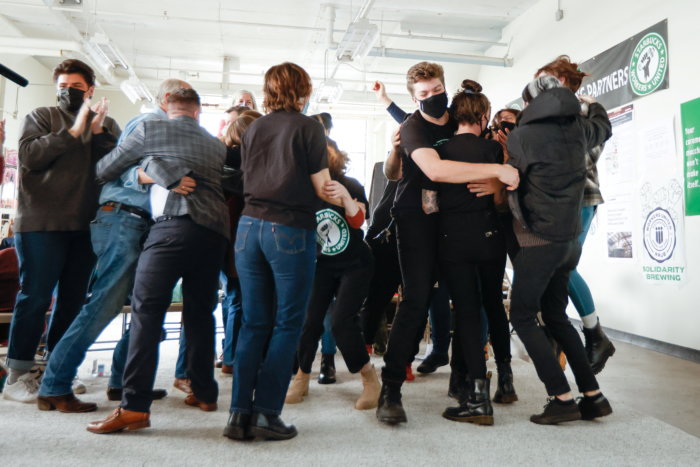
The Buffalo results were significant, according to one labor expert. “Although it’s a small number of workers, the result has huge symbolic importance,” said John Logan, a labor professor at San Francisco State University. “Workers who want to form a union in the United States are forced to take a considerable amount of risk, and it helps if they can see others who have taken that risk and it has paid off.”
Shares of the Seattle-based company closed about 1% lower at $115.35 on Thursday.
‘AGGRESSIVE’ TACTICS
Some local baristas had decried what they said were aggressive company tactics, including flooding Buffalo locations with executives, holding meetings with employees and even bringing in ex-CEO Howard Schultz to talk to workers and extol the virtues of existing wage hikes and benefits.
Starbucks denies that any of its actions amounted to union busting.
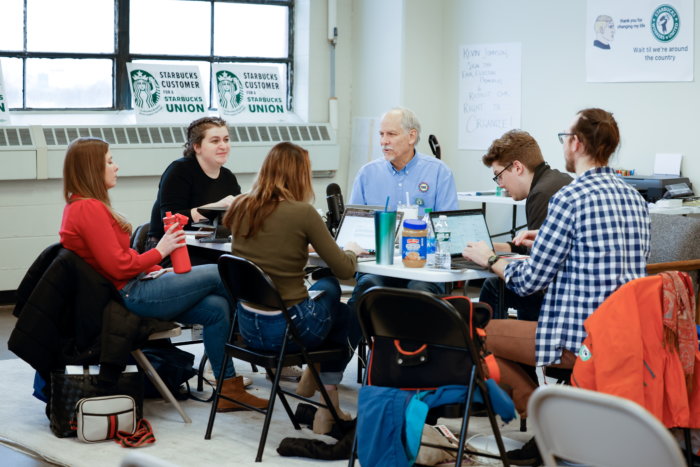
“We’ve always been one Starbucks, we’re always going to be one Starbucks,” Rossann Williams, president of Starbucks North America, told Reuters in a phone interview just before the count began. “It’s going to be a partner-by-partner relationship that we build, and that’s going to be the same.”
Both the union and company could challenge the results. The NLRB, which conducted the election, will determine the outcome of the vote at the third location later.
In Buffalo, about 15 Starbucks employees who support the union drive gathered in a room to watch results. Many jumped, screamed and hugged when they realized they had enough votes to win the first store to be counted, on Elmwood Avenue.
The vote was 19-8 in favor of joining the union.
Baristas and shift supervisors from the second location on Camp Road voted 12-8 to reject the union.



